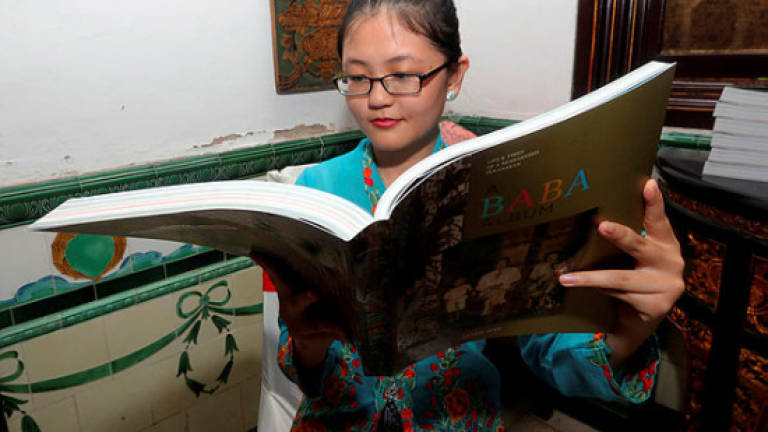Baba Nyonya heritage more than a tourism product

MALACCA: The Baba Nyonya culture that is synonymous with this state is more than just a tourism product.
It is, in fact, a vital component of Malacca's heritage, and as Tourism and Culture Minister Datuk Seri Mohamed Nazri Abdul Aziz put it, losing the Peranakan culture is akin to "losing a limb".
Speaking at a tourism event here recently, he said the ministry was determined to continue preserving the culture of this community as "it is an important component of our society and we don't want their heritage to vanish".
The Baba Nyonya community, also known as Straits-born Chinese or Peranakan, comprise descendants of the Chinese who came to the Malay and Indonesian archipelago, or Nusantara, between the 15th and 17th centuries.
The Peranakan culture came about after the Chinese immigrants intermarried with the local Malays.
The community has its own cuisine, music and costumes. It is especially known for its rendition of love ballads known as "Dondang Sayang", as well as its Nyonya "baju kebaya" and beaded shoes.
The Baba Nyonya culture has become an integral part of Malacca's identity. In other words, without this unique community, Malacca would not be the same.
Intangible heritage
Malacca Chief Minister Datuk Seri Idris Haron agreed that the Peranakan culture was a vital part of the state's heritage and its existence was among the elements that contributed to Malacca being listed as a Unesco World Heritage site in 2008.
Speaking to Bernama, he said what made Malacca special was its intangible heritage such as the Baba Nyonya and Chetti communities and the language they spoke and the clothes they wore, as well as accessories like beaded shoes.
Malacca has many historical structures like the A'Famosa Portuguese fort and the Dutch building The Stadthuys, but according to the chief minister, aesthetics alone was not a major contributor to Malacca's insertion in Unesco’s World Heritage list.
“Don’t get me wrong, building aesthetics did contribute to our insertion in the list, but intangible heritage like the Baba Nyonya culture also played a major role.
"As anyone can see, other historical sites in this world also have beautiful buildings but Malacca has (the added advantage of having) intangible heritage which is what makes us special," he pointed out.
Bastion for the Peranakan culture
The Peranakan's uniqueness stemmed from their ability to assimilate into the community they lived in, while creating a special culture of their own.
Idris said cultures such as the Baba Nyonya's helped make Malacca and Malaysia unique, hence they should be preserved for future generations.
“If the Baba Nyonya (community) is endangered or, worse still, disappears, we will lose a cultural value that had helped shape this state.
"We will make sure Malacca becomes a bastion for the Baba Nyonya community,” he stressed.
Singapore Peranakan Association president Peter Wee, who was in Malacca in August at the launch of his book titled, "A Baba Album", said although he was from Singapore, he felt right at home in Malacca because of the strong presence of the Baba Nyonya culture.
He also appreciated the state's relentless efforts to preserve the culture.
“Peranakan is so unique in terms of its multi-racial and multi-religious origins, and this can be seen beautifully, here in Malacca.
"I really consider Malacca as a big part of me,” he added.
Wee said the main reason he wrote "A Baba Album" was to create more awareness about the community among the younger generation.
“It took me three years to complete this book for our future generation so that the book can be used as a reference by our children who can gain knowledge of what our Peranakan culture is all about,” he said. — Bernama